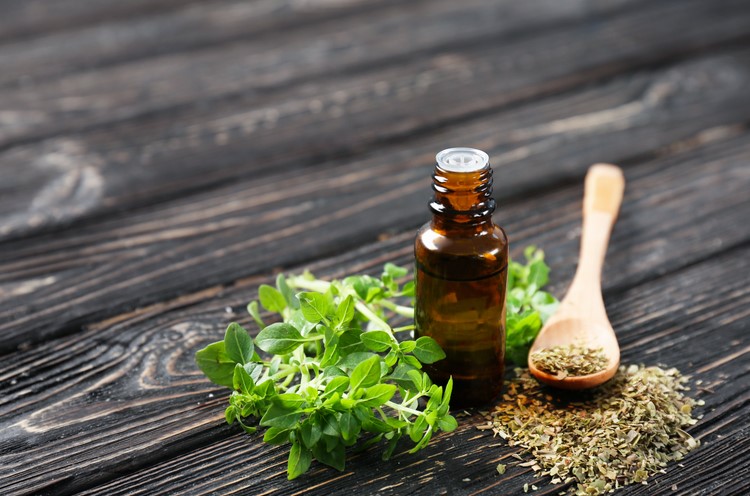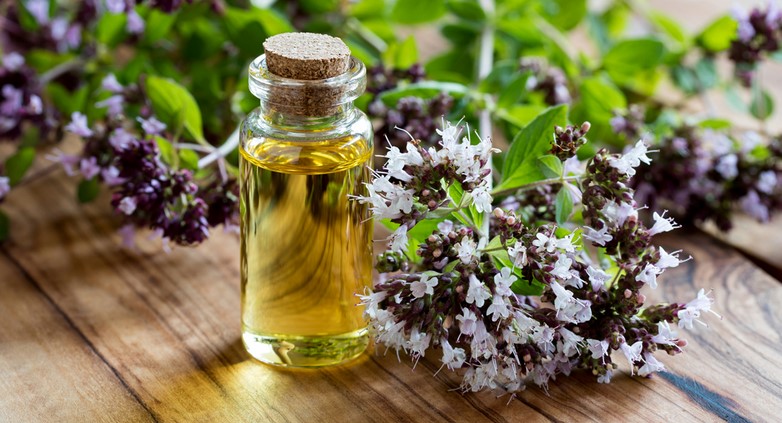There are many benefits of oil of oregano, from antibacterial properties to antifungal and antiparasitic properties. However, before you begin to use it, you should know that it is very potent. Whenever possible, dilute it before use, and increase the dosage slowly. Some formulations are already diluted. If you are not sure how much oregano oil to use, you can start with a small amount and increase it over time.
I know that you’ve probably never even heard about oregano before! However, it is a really interesting herb that can help you and your family in a lot of ways. Let’s jump into the benefits of oregano oil and why you should start using it!

Carvacrol
Research has shown that carvacrol, which is found in the oil of oregano, is capable of inhibiting the growth of cancer cells in the laboratory. In particular, it inhibits the formation of Candida biofilms and can prevent the growth of food- borne pathogens. In addition, carvacrol is thought to reduce inflammation of the gut and prevent ulcers and gastric mucosal damage. Antioxidant properties of carvacrol and rosmarinic acid also protect against free radicals and reduce cell damage.
Thymol
The antioxidant properties of oil of oregano are beneficial for the human body. Free radicals damage healthy cells and can contribute to oxidative stress. Research suggests that oregano oil may reduce the risk of diseases related to oxidative stress. Thymol is a powerful antioxidant that has anti-inflammatory effects in animal models and in vitro studies. However, more research needs to be done to understand the benefits of oil of oregano for the human body.
Antifungal
Recent research has demonstrated that the oil of oregano contains compounds that have antifungal and antibacterial properties. One such compound is carvacrol, which has shown promising antifungal activity against six gram-negative bacteria and three different types of pathogenic fungi. The oil is also known to relieve symptoms of a yeast infection and reduce tiredness due to enteric parasites. This article outlines some of the antifungal benefits of oregano and its other benefits.
Antiparasitic
Many essential oils found in herbs are effective at combating parasites, including oil of oregano. This herb is native to the Mediterranean region and contains a complex blend of phenolics and antimicrobials. Oil of oregano has also proven to be effective against several gram- negative bacteria. Its antimicrobial properties are particularly beneficial for treating parasitic infections.
Natural insect repellent
Olive (O. europaea) is an ancient Mediterranean plant that contains a number of phenolic compounds, which have been shown to have repellent properties against mosquitoes, including Anopheles stephensi. Burning 25 g of dried O. europaea yielded a repellent percentage of 79.7% against Anopheles arabiensis.

Lowers bad cholesterol
In a study involving 32 participants, researchers found that 0.85 ounces of oil of oregano after each meal decreased the amount of bad LDL cholesterol in the blood while raising levels of good HDL cholesterol. These changes were due to the plant compound carvacrol, which has been found to reduce cholesterol in mice fed a high-fat diet. This natural remedy is effective for a variety of health problems and has antimicrobial, antifungal, and antiviral properties.
Treats bacterial infections
A number of studies have been conducted to test whether oil of oregano can effectively treat bacterial infections. The oil has been shown to inactivate several standard bacterial strains, including S. aureus, P. aeruginosa, and A. baumannii, and can kill these strains. The results show that oregano oil is a good alternative to antibiotics in many situations.
Oregano oil is a great way to get some of oregano’s key antioxidants and other compounds into your diet in a natural, palatable form. However, like most dietary supplements and any other food or supplement you decide to consume, it’s important to research the potential benefits and side effects of this product before adding it to your life on a regular basis.

